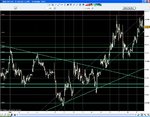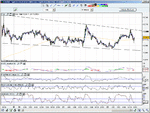Rhody Trader
Senior member
- Messages
- 2,620
- Likes
- 266
They are one and the same.
When you boil it all down, you are quite right, of course. I totally agree with your premise. Perception of the future influences the future.
It might be harder for folks to visualize in terms of many businesses, but take the example of a bank. If the perception that a bank is in trouble spreads then the rush to pull money out of it will certainly put it in to difficulty. You may say that we can't have the same kind of bank runs as in the past - the types that utterly destroyed banks and cost depositors their money - but that doesn't mean the bank wouldn't struggle to recover for the action.


